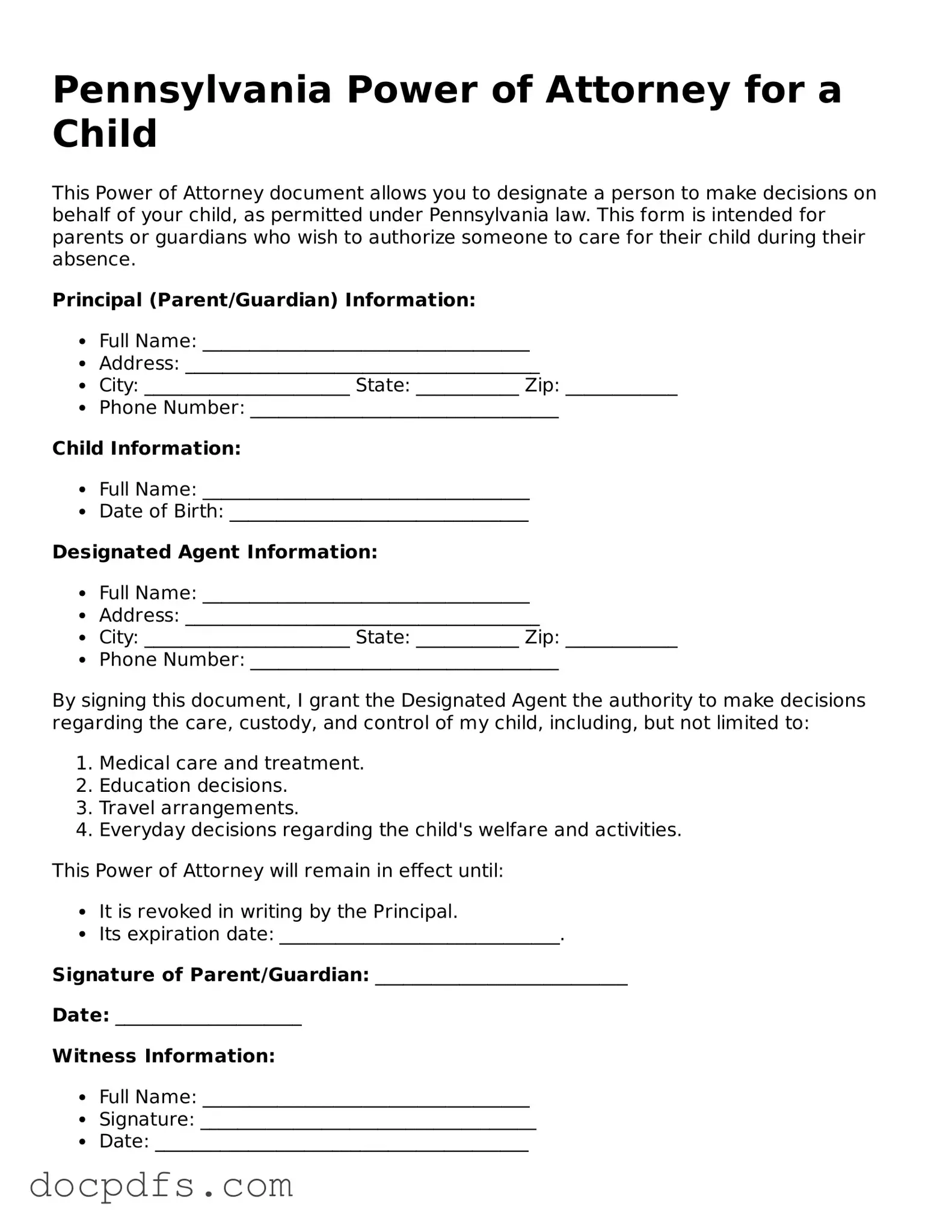Free Pennsylvania Power of Attorney for a Child Form
The Pennsylvania Power of Attorney for a Child form is a legal document that allows a parent or guardian to grant another adult the authority to make decisions on behalf of their child. This arrangement can be crucial in situations where the parent is unavailable, ensuring that the child's needs are met without interruption. Understanding how to properly use this form can provide peace of mind for families navigating various circumstances.
Open Power of Attorney for a Child Editor Now

Free Pennsylvania Power of Attorney for a Child Form
Open Power of Attorney for a Child Editor Now

Open Power of Attorney for a Child Editor Now
or
⇓ Power of Attorney for a Child
Finish this form the fast way
Complete Power of Attorney for a Child online with a smooth editing experience.